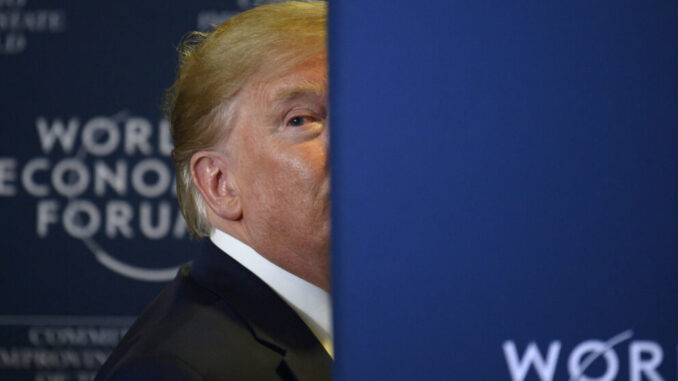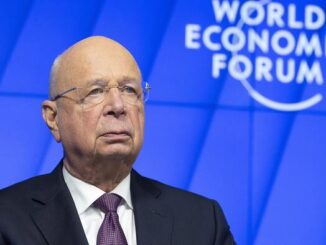
The bulk of reports percolating out of the WEF’s annual meeting have been scornful, revealing a proposed programme of enlightened elite global governance that is not going as planned. Geopolitics is back with a vengeance; the “energy transition” has turned out, so far, mostly to mean unilateral economic disarmament in favour of Russia and China. Populations are growing angry in the face of sharp rises in both mass migration and the cost of living.
And as the winds of macro-political change whistle around the (rumoured) erstwhile apostles of one world government, at least some of those apostles may be adjusting course. The New York Times reports that, off the record, the Davocracy expects Donald Trump to win — an expectation since reinforced by the concession of Ron DeSantis. And it seems that, as well as having a keen nose for the prevailing political current, at least some of these big corporate beasts are remarkably sanguine about the prospect of another Trump term.
Stephen Schwarzman, CEO of the financial services titan Blackstone, mused that he didn’t think the United States was prepared for further deficits and “open borders” — the policy slate he appeared to expect under Joe Biden. This echoes the shockwaves caused by JP Morgan Chase CEO Jamie Dimon last week, when he told CNBC that blanket condemnation of Trump voters — and of the ex-president himself — was a mistake. “Take a step back, be honest,” Dimon said. “He was kind of right about Nato. He was kind of right about immigration. He grew the economy quite well […] he wasn’t wrong about some of these critical issues.”
Does this suggest a plutocratic pivot to Trumpism? Or — more dramatic yet — that Davos man is in retreat? Well, if we take “Davos man” as shorthand for the full-fat globalisation programme, maybe. But if it’s shorthand for the international super-elite, there is no reason to imagine that just because the programme popular with this set during the “end of history” era seems to have run aground on reality, those networks — and the power and money they represent — will somehow disappear.
It does, however, suggest that we may be seeing meaningful policy disagreements emerging among the global aristocracy. Until recently, at least from my vantage point among hoi polloi, a quiet unanimity has prevailed in this stratum on issues such as eco-modernism, mass migration and global supply chains. This consensus has, in turn, helped constrain which issues ever become topics of democratic debate — indeed, part of the reaction to Trump in 2016 stemmed from the threat his election posed to this consensus.
A lot can change in eight years. If two beasts as big as Dimon and Schwarzman, commanding financial services colossi with a combined market cap of $638 billion, are now willing break ranks on record, on the hitherto unanimous elite denunciation of Trump, that indicates a vibe shift of some magnitude among the global aristocracy. And if we already live in a post-democratic era, in which the political weather is set not by voting publics but by postmodern lords and princes, this will matter a great deal.
We should not, of course, take this as licence to fantasise about an emerging caste of “based billionaires” that will somehow rescue us from the WEF lizards and restore cohesive, democratic nation states with well-paid industrial jobs and a welfare safety net. Nor should we take it as licence to fantasise about Trump delivering any such thing. That order is not coming back.
In its aftermath, we can reasonably expect ruling elites to do what they have always done: pursue their own interests. But this is much more difficult if the plebs hate you, and regard your position and privileges as illegitimate. Accordingly, even the most astronomically rich and connected Davocrat needs at least a weather eye for what the masses will tolerate.
Though it’s currently a muted change, the words of these financiers strongly suggest that some in the Davocracy have concluded a course correction is needed, if Western governments are to avoid provoking serious popular retaliation on contentious issues such as migration. If this is so, it’s a positive development. It may also be the closest actually existing post-liberalism gets to democratic accountability.



